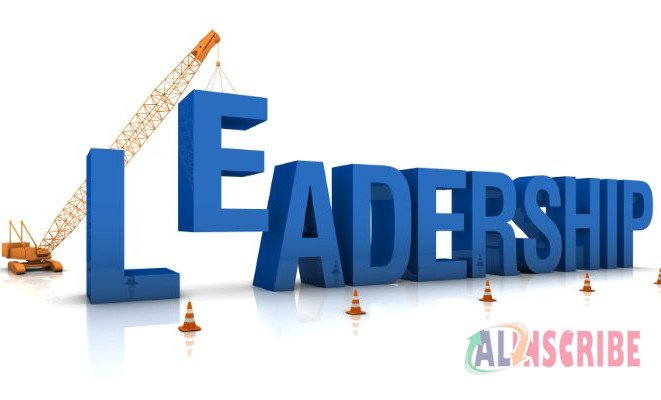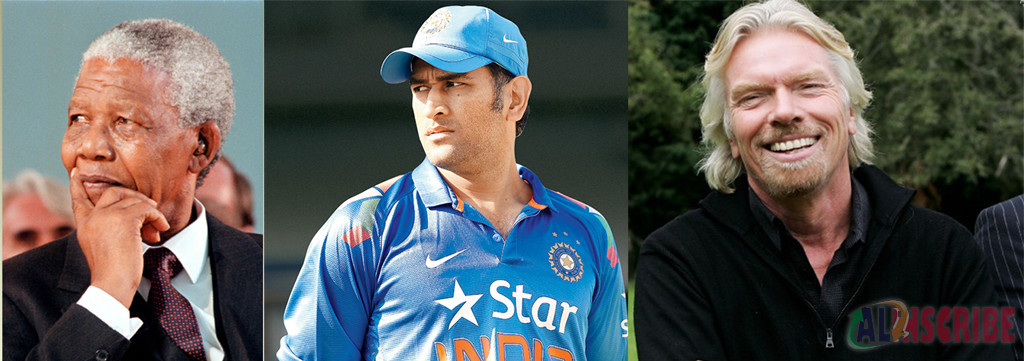LEADERSHIP...BORN OR BRED?
Author: Administrator
Published in: Leadership

Introduction
The question as to whether a person is born as a leader with certain innate qualities or whether leadership is a learned behavior, is one of the issues defining the many questions around good leadership. There are ample examples throughout the latter parts of world history where debates have been conducted to identify and define the term leadership. This article will attempt to provide some guidance to its readers on some of these issues. It will point the reader to further subjects which may be of interest for additional reading or study.
Definition: A leader has the authority or the ability to lead a group of people by influencing them to reach a goal shared by the members of the group.
Examples of world leaders are Nelson Mandela in the political field, Sir Richard Branson in the business world and M S Dhoni in sports. Each of them has made indelible impression in their fields of expertise but also in other aspects of their lives.
The quote by Sam Walton the American businessman who founded Walmart and Sam's Club gives greater depth to the definition of leader:
"Outstanding leaders go out of their way to boost the self-esteem of their personnel. If people believe in themselves it's amazing what they can accomplish."
How Do Leaders Obtain Their Position
Leaders can be appointed or elected. In both cases of election and appointment, the body or group with the ability to take this action may make mistakes with disastrous consequences for the organization. The desired characteristics may, therefore, be misjudged.
Some people are born with leadership characteristics but the attributes can also be a learned behavior. There are serious differences of opinion about the truth of this statement as some experts believe in the supremacy of the genes. Some people has the gift of leading other people. This gift must be nurtured and developed. If you are not born with the natural skills, I believe, you can learn and develop such ability and become a good leader.
The world needs leaders in various fields of activity. Businesses, churches, government, sport, schools, clubs, communities, and cooperatives all need responsible managers. There is a strong movement to bring more women into leadership roles as this broadens the availability of talent to address our problems.
Requirements of a Leader
- Intelligence is required to identify problems, take them apart and generate solutions.The leader must have an inspiring vision. The setting of objectives and vision lead to the accomplishment of your target.He must measure progress at all times, be able to do good reports, and be able to communicate them, taking account of the level of the audience being addressed.
- Good knowledge and experience are required because the manager must know what he is talking about. He is often a generalist as opposed to a specialist.
- Creativity focuses on the belief in win-win situations that seeks options until the goal can be achieved.The leader sees opportunities, and can, therefore, be resourceful by converting them to the organization's advantage. In group sessions, he creates alternative ideas, even if some are not very good. In this way, he invites the synergy of the group to find best practices.
- A manager is blessed with an excellent judgment and intuition which allows him to learn not only from successes but also from mistakes. He has an ability to foresee future developments and challenges to a high degree. This anticipation ensures timely action. He remains objective and avoids emotional and impulsive decisions.

- The term emotional intelligence is used to describe the sensitivity of a leader. He must be aware of his own emotions, how he feels about other people. He must realize that his decisions and his emotions impact on others. Changes in procedures and systems should be discussed before they are implemented.This communication will be beneficial and exclude the challenges which may result.
- The leader's analytical powers enable him to see the components of a challenge and address stumbling blocks as they arise.
- The leader has persuasive capabilities. He must have good language skills to enable him to put his vision into words. He inspires others to accept his dream and help him to achieve it.He must cooperate with everyone involved in the business.
- He delegates tasks with confidence, knowing that all mistakes can be rectified.He avoids micromanagement and allows the person delegated to get on with the work. He uses restraint consciously to allow others to grow.
- Social skills are required because it is clear that communication with people at all levels of society is necessary.
- The manager is brave because leaders often take decisions that are not popular, even hurtful like the reduction of staff in an organization.
- Ethical requirements play a tremendous role in the activities of a leader. He must treat subordinates fairly. Even if the leader suffers some form of unfairness, equity for colleagues must be maintained. A chief is an honest person and people expect him to have integrity. He acknowledges other workers' skills and successes. He will never be nasty or a bully.He helps people to grow into managers themselves and encourages them to broaden their skills. He is open to constructive criticism. He accepts that he does not always have the answers. He relies on the feedback of subordinates especially on those things that they have greater expertise. He is dedicated to the development of himself and others.He learns from his experience whether good or bad.He does not run away when things go the wrong way. His integrity must ensure that his own actions comply with the values and rules which he has laid down for his team. He is a leader, not a boss.
- A leader takes risks.When required he can be daring, move out of his comfort zone.He takes on tasks that others are cautious to accept. He shows a level of braveness by making unpopular decisions, but addressed them if it is required.
- He is organized and puts his plans or projects on paper with detailed responsibilities and milestones. Nothing is forgotten by working this way.Gentle persuasion ensures the forward movement of the project.He uses formal methods to identify priorities and plan for the future like swot analysis, strategic planning, core competency analysis and change management to aid him in his work.
- A leader gets along with people. He can achieve peace in the workplace by dealing with disputes.
- A leader is responsible because he knows what is expected of him and complies.He is willing to work with his subordinates, looking after their interests too. He accepts responsibility for work completed. When required he appoints a team of workers, yet puts his own stamp on it when the task is completed.
- Leaders are passionate, remembered for the impact that they make on the institution which benefits from good leadership. He must transfer his passion to others to help him achieve his goals. The leader is totally sure that he is at the right place at the right time.He executes his role with energy and drive because he knows he can make the difference.He has the ability to motivate people, make them excited about their achievements.
Leadership Styles
The traditional line between styles of leadership refers to the democratic style on the one hand and the autocratic style in the other corner. Democratic refers to a chief who seeks the advice of aides and encourages and motivate his co-workers. Opinions, different from his own, are tolerated. Autocratic refers to a manager who does not take into account the opinions of others, dominate them and is fond of issuing commands. Differences of opinion are not tolerated.
Often leadership styles are also referred to as indifferent, task orientated or relationship orientated. Space for these finer distinctions allows no further debate on this issue.
Conclusion
It is clear that the issue of identifying good leaders and developing their abilities are complex. What is also clear that everyone has the ability to learn and develop leadership up to the level that fits his personal attributes. So, do not despair, you can be an outstanding leader.
Article Comments
Similar Articles
Articles Search
Sponsor
There are zero sub-categories in this parent category.
There are zero sub-categories in this parent category.
There are zero sub-categories in this parent category.
















